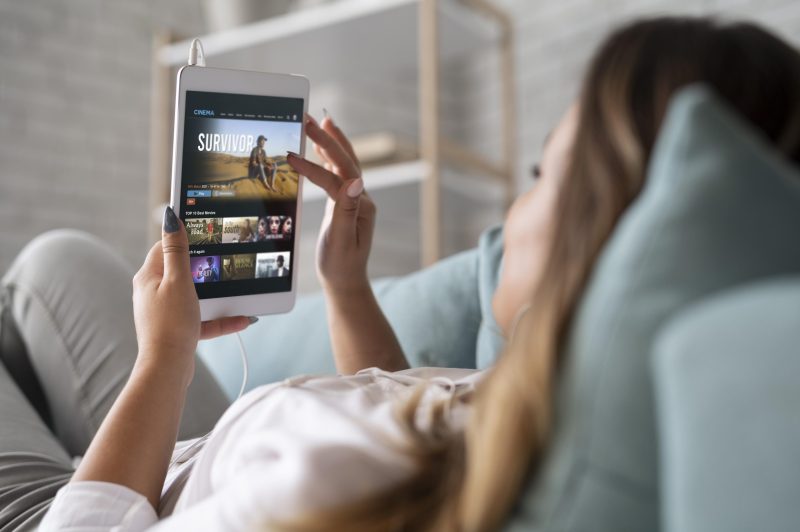The current technological advancements have made electronic devices an integral part of everyone’s life, to the point where they can hardly be separated from individuals. Nearly everyone now owns a smartphone, which has become an essential communication tool, along with other electronic devices such as laptops for work and televisions for daily entertainment.
Certainly, the presence of electronic devices in daily life has both advantages and disadvantages. The advantages include simplifying communication and aiding various daily tasks, saving time and energy. However, the downside is that excessive screen time can have adverse effects on everyone’s health.
What Is Screen Time?
For those who may not know, screen time refers to the average time spent looking at screens of various electronic devices, including smartphones, laptops, televisions, and others. The longer the screen time, the more negative effects it can have on health. These effects apply to all age groups, from children to adults, and can result in sleep disturbances, obesity, neck and back pain, and even depression.
Furthermore, looking at statistics from Data.ai in 2022, it is shown that the average screen time in Indonesia is approximately 5.7 hours per day. Considering this data, the impact of excessive screen time is significant and should not be ignored. Consequently, everyone needs to manage their screen time effectively.
Benefits of Managing Screen Time Properly
By managing screen time appropriately, individuals can experience various benefits, such as maintaining physical health, establishing regular sleep patterns, avoiding stress and depression, and, most importantly, enhancing productivity. This is especially vital for students, including university students, who need to manage their time effectively, including regulating their daily screen time.
With proper screen time management, students can learn more effectively, complete their coursework efficiently, increase their productivity, achieve better grades, improve communication, graduate on time, and safeguard their mental health while in school. These reasons emphasize the importance of managing screen time, particularly for students focusing on their education.
Practical Ways to Manage Screen Time
Although there is no universally ideal screen time limit for adults, focusing on positive activities is essential, especially since students are in a productive age range. For students who are unsure how to manage their screen time, here are some practical steps that can be implemented daily:
- Limit Screen Time
The first practical step is to limit screen time, including smartphone use, laptop activity, and television viewing. Set a specific daily time limit for each of these activities. After setting these limits, students should consistently adhere to them and avoid exceeding them. This approach can effectively reduce screen time and enhance student productivity by increasing their focus.
- Define Screen Time Zones
In addition to limiting time, another approach is to define specific screen time zones. Students should determine which areas are designated for screen time and which are not. For example, the dining area can be a screen-free zone for students to focus on their meals. Moreover, the study desk area should also be designated as a screen-free zone, preventing mobile devices or television use, to create a conducive environment for studying and working. Typically, the bedroom area should also be designated as a screen-free zone to ensure restful sleep and prevent late-night activities.
- Prioritize Physical and Mental Health
Instead of continuously engaging in screen time, which can negatively affect health, students should prioritize their physical and mental well-being by engaging in physical activities and exercise. Various types of physical activities can be chosen to occupy free time and boost productivity. For example, participating in a marathon event, such as “Run IT by Prasmul Olympics,” organized by Universitas Prasetiya Mulya, which is open to the public, is an excellent option. University students from Prasetiya Mulya can join these events to become more productive and reduce their screen time.
- Pursue Enjoyable Hobbies
Every student undoubtedly has hobbies they can pursue to reduce screen time. Furthermore, Universitas Prasetiya Mulai offers a wide range of extracurricular activities in which students can explore and develop new hobbies. There are three extracurricular activity categories to choose from: arts and skills, sports, and personal development. Therefore, there is no excuse for students not to be productive, as the university provides a variety of comprehensive facilities.
As a top business university, Universitas Prasetiya Mulya aims to make all students from all majors more productive during their time at the university. For this reason, numerous facilities are provided for students, including a digital library collection that helps reduce screen time when students have free time.
These comprehensive facilities are available to all students, including new prospective students who will begin their first semester. For those who are still undecided about their university choice, Universitas Prasetiya Mulya is currently hosting an open house event for S1 programs. Prospective students can obtain complete information regarding interests, majors, and academic life. Register for Universitas Prasetiya Mulya’s open house event by clicking prasmul.link/openhouse now, as registration is limited.


